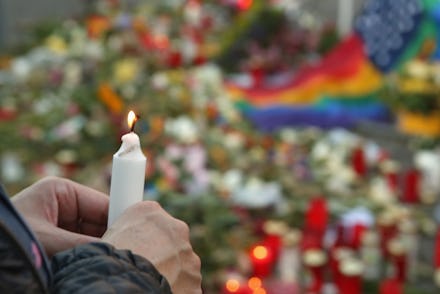Report: Election rage made hate crimes rise by 20% in major US cities last year

Nine major U.S. cities reported increases in hate crimes by more than 20% in 2016, according to one researcher who spoke to NBC News on Tuesday. The reason for the spike? Flaring tensions in the wake of the 2016 presidential election.
California-based researcher Brian Levin culled data from police departments as director of the nonpartisan Center for the Study of Hate & Extremism at California State University, San Bernardino, where he teaches criminal justice.
The new numbers show that bias crimes increased in the nine major metropolitan areas he studied — New York; Washington; Chicago; Philadelphia; Montgomery County, Maryland; Columbus, Ohio; Seattle; Long Beach, California; and Cincinnati — in the wake of the Nov. 8 election of President Donald Trump.
Recently, Trump was compelled to denounce a nationwide spate of antisemitic crimes during his Feb. 28 address to Congress, including multiple bomb threats made against Jewish Community Centers and the desecration of Jewish cemeteries.
"We might very well be at the start of a trend where anti-Semitic incidents are going up each year," Levin told NBC. "We were seeing an over-decade decline in anti-Semitic incidents.
According to NBC, hate crimes against Muslims and the LGBTQ community accounted for most of the growth reported in the rate of bias crimes in America.
Unsurprisingly, Levin's research showed that areas with the largest populations recorded the greatest increase in hate crimes. New York City had the largest number of bias incidents in 2016 at 380 — a 24% increase from 2015's numbers. Meanwhile, Washington, D.C., saw the largest rate increase with 107 bias incidents — a 62% rise since 2015.
The contentious 2016 election, which brought issues like race, gender, class and religion to the forefront for many Americans, could have had an impact on both the number of U.S. citizens committing hate crimes and the number of people reporting them, Levin told NBC.
"That, coupled with significant coverage, might have encouraged two things to happen: Individuals who vary in motivation, from hardcore bigots to those just seeking a thrill or seeking something to do, as well as victims who felt that they should report this because they're not alone," he said.